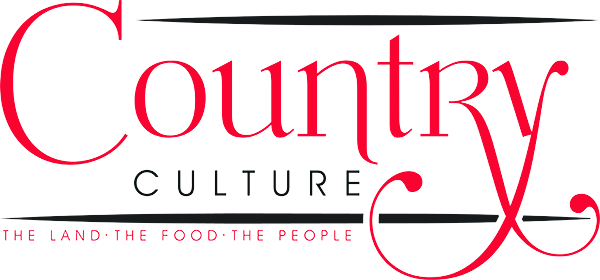Nestled in the gentle hills of West Springfield, PA, Cherry Hill Ecological Farm is more than just a farm – it’s a living, breathing example of how a thoughtful and ecologically-minded approach to agriculture can nurture both the land and the community it feeds.
Founded in 2016 by partners Will McGee and Gretchen Oat, Cherry Hill is the result of a bold pivot from traditional career paths toward a hands-on life stemming from sustainability and stewardship.
Neither McGee nor Oat came from farming backgrounds. Will studied forestry in college, drawn to the intricate ecosystems of woodland environments. Gretchen studied ecology, focusing on the complex relationships between organisms and their environments. Their combined understanding of natural systems laid the foundation for an agricultural endeavor built on observation, respect and long-term thinking.
From Rocky Beginnings to Fertile Ground
Their first foray into farming was a vegetable CSA in Connecticut. But the stony, rock-laden soil quickly proved uncooperative. The land, though full of promise, offered at least as many blisters as bounty. In search of better terrain and a community more aligned with their values, they relocated to northwestern Pennsylvania.
There, they found what they were looking for: a gentler landscape, a supportive local food movement and a place where their vision could take root.
Cherry Hill Ecological Farm now spans 49 acres of owned land, with additional leased acreage that supports rotational grazing and future expansion. While the scale is modest, the impact is meaningful.
“Nearly all of our customers are within 50 miles,” said Will. “We’ve made a conscious choice to keep things local, to know our customers and to be part of a regional food system.”
A Natural Kind of Farming
From the outset, Will and Gretchen knew they didn’t want to replicate the industrial agriculture model that dominates much of the American food system. Instead, they looked to nature for guidance. Their approach avoids tilling, a practice that disrupts soil structure and microbial life, to grow livestock feed. Instead, they use managed grazing, moving their livestock to fresh pasture twice a day to mimic natural grazing patterns.
This style of agriculture builds soil fertility, improves water retention and increases biodiversity. “We want to work with the natural landscape and shape what we do around what the natural landscape wants,” explained Will.
This guiding philosophy has allowed them to raise animals in a way that enhances the health of the land rather than depleting it.
Their primary product is grass-fed beef, which they sell in quarter, half and whole-cow options, processed through a USDA-certified slaughterhouse. The half-cow share is their most popular offering – many families choose to split it, creating a sustainable and affordable option for buying high-quality meat in bulk.
By summer 2025, Cherry Hill’s herd is expected to reach about 100 head of cattle, including 35 brood cows. The cattle are rotated frequently across the landscape, not just for pasture health but also to ensure the animals are well-fed and stress-free. This rotational system improves the land and enhances animal welfare, demonstrating the farm’s commitment to ethical practices.
Enduring the Elements
Farming in the Keystone State is not without its climatic challenges, and this past winter tested the McGee-Oat partnership and their infrastructure in full. Around Thanksgiving, a powerful snowstorm blanketed the region with nearly five feet of snow, followed by a winter that maintained a steady layer of hard-packed snow, over a foot thick, for months.
Yet Cherry Hill was prepared. The couple had already made substantial infrastructure investments, including high-tensile perimeter and interior fencing, 20 strategically placed water hydrants and a mile of buried water line. It’s that level of foresight and dedication that distinguishes Cherry Hill not only as a sustainable farm, but as a resilient one.
Forestry, Firewood & Forest Management
In addition to raising livestock, Cherry Hill offers firewood. But this isn’t just your average stack of boilerwood. Will, drawing from his forestry education, selects trees carefully and harvests them in a way that mimics natural forest disturbances. His firewood is aesthetically pleasing, fit for fireplaces rather than furnaces, and cut with both beauty and function in mind.
“There’s this mindset that some people have that their forested land is like bank accounts – you just save up the trees and cut them all when you need the money,” he said. “But it doesn’t work like that. Forests are ecosystems. You need to interact with them intentionally.”
Cherry Hill is actively seeking to acquire more forested acreage so they can expand their model of sustainable forestry. It’s an area of the farm that speaks to a broader vision, not just of farming, but of land stewardship.
Looking to the Future: Regenerative & Resilient
As they look to the future, Will and Gretchen have set their sights on an even deeper level of ecological integration: silvopasture. This regenerative agriculture practice combines trees, livestock and forage crops into a single, cohesive system. Properly implemented, it offers a wealth of benefits: improved soil health, enhanced animal well-being, better water infiltration and substantial carbon sequestration.
Silvopasture isn’t simply about planting trees in a pasture or letting cows wander into a forest. It’s about designing a system that allows trees and animals to thrive together. The shade from trees can lower animal stress while their roots stabilize soil and improve nutrient cycling. In return, grazing animals help control brush, fertilize the soil and encourage healthy undergrowth.
For Cherry Hill, the move toward silvopasture represents a logical next step – a way to continue evolving toward the kind of agriculture that doesn’t just do less harm, but actively works to heal the land.
A Model for What’s Possible
In a time when industrial agriculture often dominates the headlines with concerns about environmental degradation, supply chain fragility and the loss of connection between producer and consumer, Cherry Hill Ecological Farm offers a powerful counter-narrative.
It’s a story about starting small, thinking big and sticking to your values. About doing hard, meaningful work that restores rather than extracts. About two people (and two very helpful dogs) who had no farming background but all the determination in the world.
And it’s a story about the land itself: how it can heal, how it can support and how, if we listen carefully and work alongside it, it can feed us – not just with food, but with purpose.
For more information visit CherryHillEcoFarm.com.




